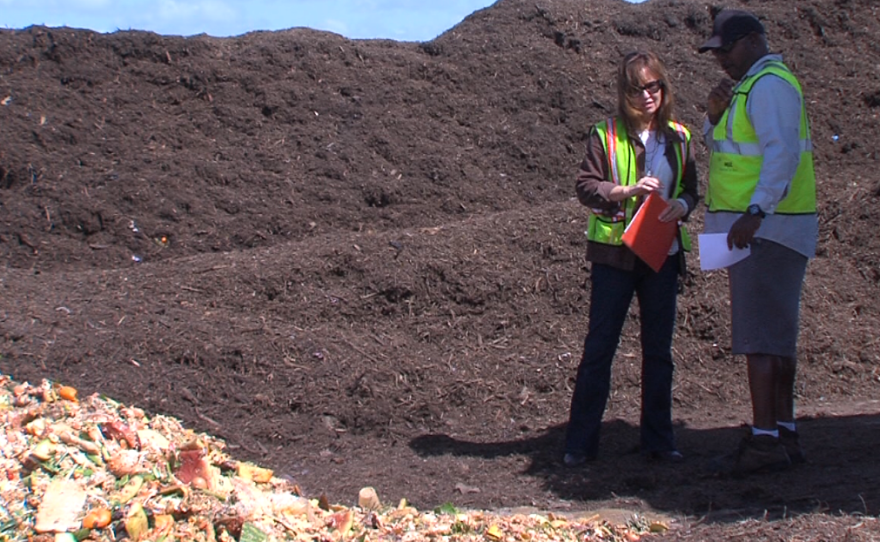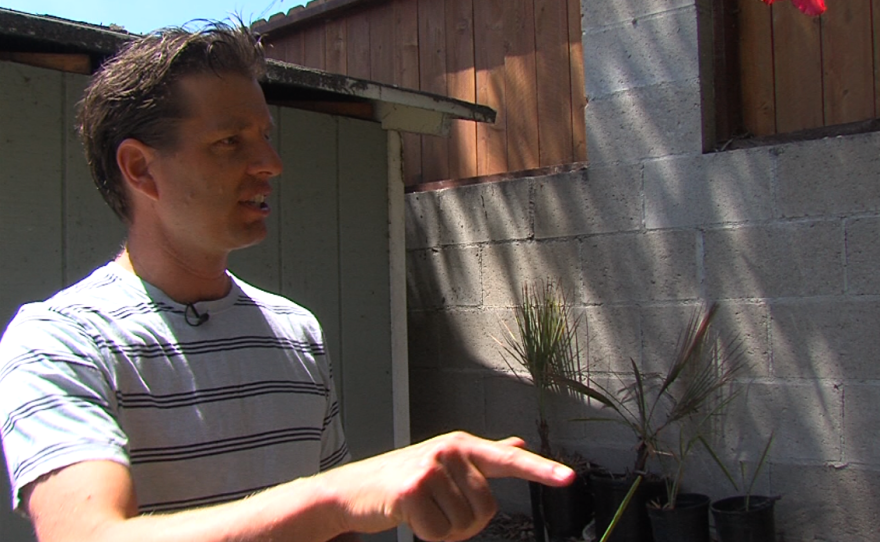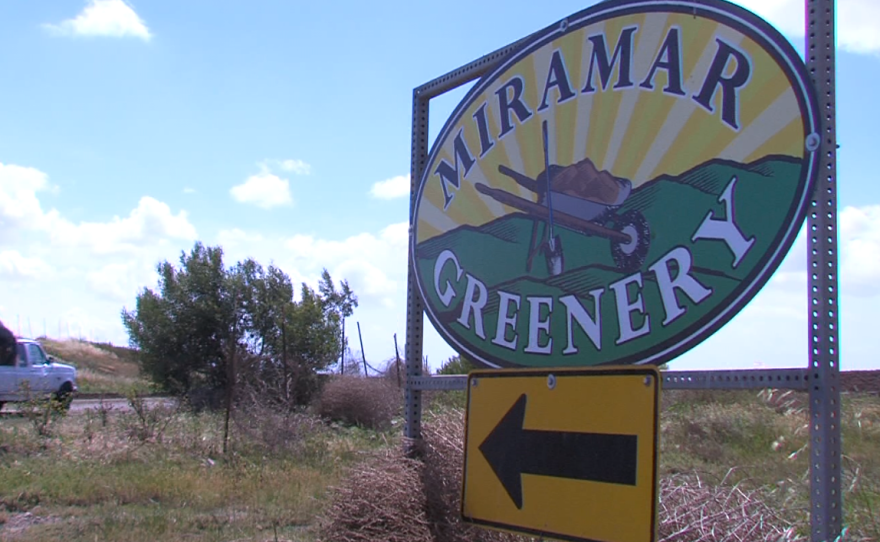People from across the country have been in San Diego this week for the BioCycle West convention, a forum for cities and environmentalists to share the latest tips and technologies in large-scale composting.
San Diego hosts the convention every two years, putting a spotlight on the city’s own efforts to divert more organic waste from its landfill into organic recycling programs.
Five years ago, San Diego’s Miramar Landfill began collecting food waste from grocery stores and the military and depositing it in its “Greenery.” The food waste is covered with mulch from the city’s yard waste collection, cooked for 10 weeks and ultimately turned into nutrient-rich soil. Any San Diego resident can take up to two cubic yards of the finished product for free.
The original space for composting food waste has tripled since the pilot program began, and the landfill now composts 10,000 tons of commercial food waste per year, said Ana Carvalho, the city’s composting specialist.

But another 80,000 tons of food waste still goes into the landfill, taking up limited space and emitting methane — a greenhouse gas with more than 25 times the impact on climate change than carbon dioxide. Organics still make up the largest portion of San Diego’s landfill material, at 39 percent.
Carvalho, a presenter at the BioCycle convention, said she sometimes envies other cities with more resources and state-of-the-art technology, but San Diego has other benefits.
“None of them have a composting facility or a landfill in the middle of the city,” she said. “It’s so convenient — less trucks, less driving around.”
No curbside collection — yet
Food waste collection is still limited to businesses and the military, and there are numerous challenges to expanding the program to residential areas.
One challenge is finding space to put all the extra food waste. It’s a long and burdensome permitting process to expand existing composting facilities, or create new ones. Anaerobic digesters, which turn organic waste into biogas, offer even greater environmental benefits than composting. But they’re very expensive, and finding a location for them is equally difficult.
Cities like San Francisco have used the competitive bidding process to pressure waste haulers into offering curbside kitchen waste collection. Chula Vista is piloting a similar program.
But San Diego has 21 franchised waste haulers, making it difficult to exert any pressure. Earlier this year, the City Council voted to extend the rights of those haulers to operate in the city, despite a city auditor report finding they should be consolidated.

Carvalho said the city also needs more infrastructure to be able to divert more organic waste. In the absence of extra funding, the city is encouraging the private sector to come up with its own solutions.
The city is sitting on a large, untapped revenue source related to waste collection: A report from the city's independent budget analyst said eliminating the People's Ordinance could add $31.3 million a year to the city's general fund. The nearly century-old law obliges the city to provide trash collection for single-family homes at no extra cost to the residents. Apartment and condo residents have to pay for their trash collection separately.
The ordinance has repeatedly been condemned as obsolete and unfair, notably by the San Diego County grand jury and the San Diego County Taxpayers Association. But repealing it would take a popular vote — something the city’s politicians have consistently avoided.
Making composting the norm
With no large-scale collection of kitchen waste from residents, composting is left to individual households. Matt Spydel purchased a discounted compost bin from the city in 2007 and has been using it at his Point Loma home ever since.
“It’s a win-win, because it diverts material from the landfill, and then you get to use it to improve soil you grow things in,” Spydell said.
Pauline Martinson, executive director of the nonprofit environmental group I Love A Clean San Diego, said the city can’t reach its goal of “zero waste” overnight, though staffers are working hard with limited resources to divert more organic waste from the landfill.
But she said more has to be done to educate San Diegans on the need for composting.
“I think we’re there with recycling. Most people understand that it’s good to recycle,” Martinson said. “But I’m not sure that there’s enough pressure on composting.”






